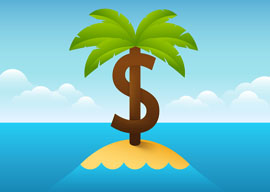
April 16, 2016

Source: Bigstock
My late father-in-law (whom I never met) used to say that the reason he paid a lot of taxes was that he earned a lot of money”not by the standards of Mossack Fonseca’s clients, perhaps, but by those of the majority of his fellow citizens. He did not enquire too closely into the efficiency with which his taxes were spent. That was, no doubt, where misery lay. But he was fortunate enough to live in a country in which they were not entirely wasted.
His attitude was admirable: He counted his blessings rather than his curses. This is something that few of us manage for long. For every minute that we spend recalling how fortunate we are, we spend an hour dwelling on the wrongs done to us, among them, taxation.
The outrage that greeted the Mossack Fonseca revelations (actually, rather few so far) seems to me to partake more of joyous spite and hatred of the rich than of any real desire to improve the world, the latter being a much weaker emotion than the former. If the rich could be deprived of their wealth, even if no one else benefited thereby, I think many people would want it.
In practice, of course, money tends to disappear or evaporate as taxation approaches. Moreover, even if the money hidden offshore were paid in taxation, it does not follow that public services such as schools would improve proportionately. After all, it cannot be for lack of expenditure that a significant proportion of British children are semiliterate after eleven years of compulsory attendance at school. Every country has its bottomless pits. As for Mr. Putin’s illicit fortune, anyone who supposes that, were the Russian state to recover it, the Russian people would benefit…well, they are not very well-versed in Russian history.